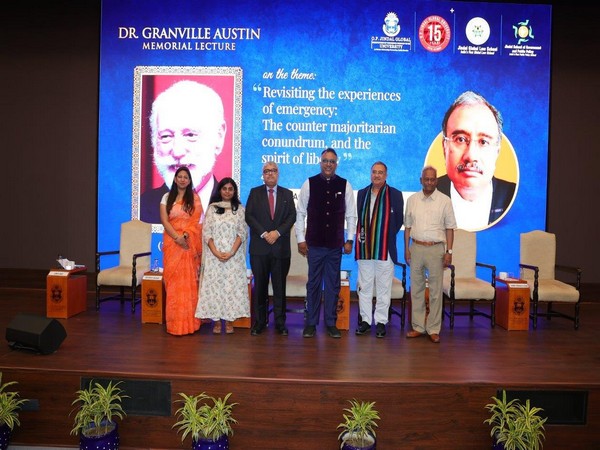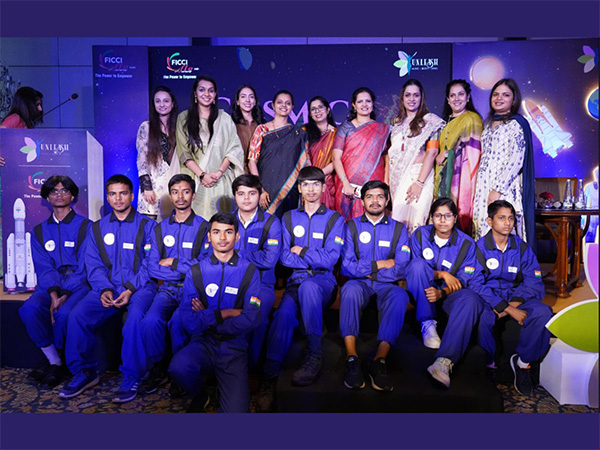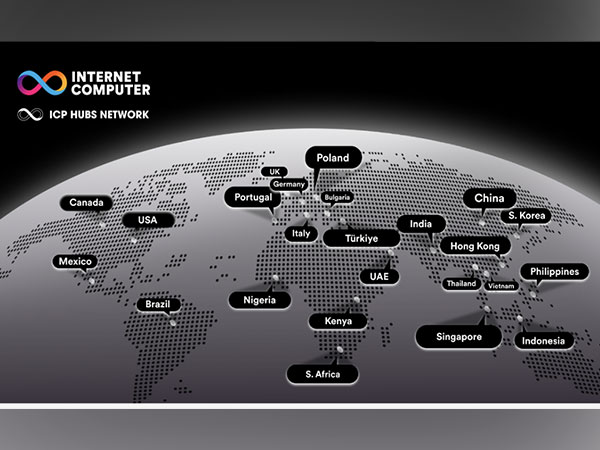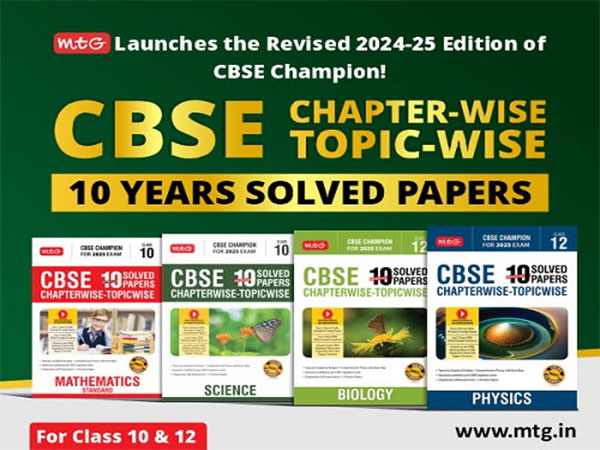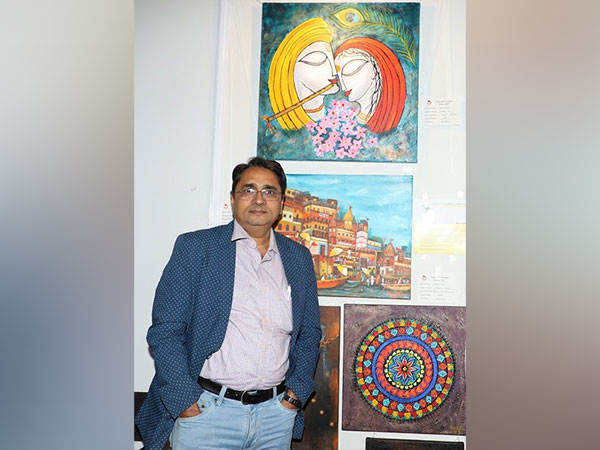The Counter Majoritarian Conundrum: Parag Tripathi, Jurist & Sr. Advocate, Supreme Court at Dr. Granville Austin Memorial Lecture
Apr 19, 2024
OP Jindal University
Sonipat (Haryana) [India], April 19: "The Protection of fundamental rights and the spirit of liberty are central to our democracy. In this context the play of the counter majoritarian doctrine inherent in judicial review and at times the abandonment thereof, is what makes the study of the constitutional implications of The Emergency in India, an issue which continues to be relevant today," said Mr. Parag Tripathi, Senior Advocate Supreme Court of India at the Dr. Granville Austin Memorial Lecture on the theme "Revisiting the experiences of emergency: The counter majoritarian conundrum, and the spirit of liberty". "The understanding of the scope and ambit of fundamental rights, should begin by an examination of what are the fundamental wrongs which are sought to be so addressed. In the play of this doctrine of counter majoritarianism, the Justices are not unmindful of the median of the politically relevant public opinion. This is accentuated in a scenario of a strong one-party government led by a powerful national leader. The working out of this aspect of judicial review by our constitutional courts needs to be understood in its interplay with the spirit of liberty and the rights of minority groups, said Mr. Parag Tripathi, a noted Jurist and Senior Advocate Supreme Court of India.
Mr. Tripathi mentioned the Civil Rights cases of Black Americans in the aftermath of the American Civil War where the rights granted by the American Constitution needed to be further protected by Federal Legislation due to the contrarian approach of many southern states in America. This federal law - The Civil Rights Act, 1875, was struck down by the US Supreme Court-thereby working out the counter majoritarian function in a somewhat retrograde manner.
"In any democracy including India when a law is enacted, it is generally understood as stating the will of the majority. When a law on being challenged before a constitutional court is struck down, it is an exercise of judicial review against perceived will of the Majority and so counter Majoritarian in substance. It is important to note that mere laws will not ensure the spirit of liberty. As our nation experienced during the Emergency, and thereafter, when the people of India threw out the government which they thought was guilty of a constitutional overreach during The Emergency. In fact, there was a swell of support when the Emergency was first imposed! But the manner in which it went on, it elicited this reaction from the people, based on the spirit of liberty which lay in the hearts and souls of Indians. This spirit of liberty is the spirit which is not 'too sure' that it is right, and seeks to understand the minds of other men and women. It is accommodating in nature."
Prof. (Dr.) C. Rajkumar, the Founding Vice Chancellor of O.P. Jindal Global University noted in his welcome address that Dr. Granville Austin was an American historian of the Indian Constitution. Austin received most of his early education at Norwich, Vermont, USA. He graduated from Dartmouth College with a BA in American Literature. He then earned a doctorate in Modern Indian History from Oxford University. "He has held fellowships or grants from St. Antony's College, Oxford, the Ford Foundation, the Fulbright Program, the American Institute of Indian Studies, the Rockefeller Foundation, the Woodrow Wilson International Center for Scholars, the Rajiv Gandhi Foundation, and the Institute of Current World Affairs.
Professor R. Sudarshan Dean, Jindal School of Government and Public Policy gave his reflections on the contributions of Dr. Granville Austin and said, "Dr. Austin had the enterprising idea to write to the Prime Minister of India to ask for access to the papers of the Constituent Assembly. Granville was given access to the paper which now constitute the National Archives, and he was able to write a thesis in 1966 in a very elegant and accessible manner. His account of the framing of India's constitution, as it was simply written, began to get quoted in key references. Later, he wrote a book on the Workings of the Indian Constitution." Dr Sudarshan's reflections were further peppered with his recollections and association with Dr. Granville Austin at the Ford Foundation and how he went to great lengths to study the subject by meeting every person associated with the project, in this case the Indian Constitution."
Later Mr. Tripathi said that the later scholarly works have now demonstrated that judges seldom deviate from the median of public opinion particularly from politically relevant public opinion. The impact of the counter majoritarian doctrine may therefore be a little overstated. Mr. Tripathi then gave example of how this doctrine played itself out in the United State of America in the abortion cases. Likewise in India, he gave the example of reading down of the provision of the Indian Penal Code that criminalized homosexuality. Mr. Tripathi ended by quoting a couplet of Mirza Ghalib to buttress his view that Justices of the Constitutional Courts while playing out the counter majoritarian principle, appeal to the brooding spirit of liberty and the intelligence of a future day.
In 2011, in recognition for his writing on the framing and working of the Indian Constitution, Dr. Granville Austin was awarded a Padma Shri award, the fourth highest civilian honour of the Republic of India. National Translation Mission of the Ministry of Human Resource Development of the Government of India has selected The Indian Constitution: Cornerstone of a Nation for translation into Indian languages. The book has already been published in Telugu, Marathi, Punjabi, Odia, Hindi and Malayalam languages.
The concluding remarks were made by Prof. Dabiru Sridhar Patnaik, Registrar, O.P. Jindal Global University who thanked the eminent advocate Dr Parag Tripathi for his incisive lecture.
(ADVERTORIAL DISCLAIMER: The above press release has been provided by OP Jindal University. ANI will not be responsible in any way for the content of the same)
